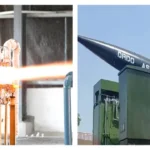After weeks of turmoil caused by the excessive rains and the floods they caused, Punjab government schools will slowly start to reopen. The official notice given has stated that all school staff should return to their schools on September 8, to inspect buildings, inspect fundraising, and clean before students return.
The Punjab government has indicated, this is needed before campuses are safe and functional after the recent Punjab floods. Each District Commissioner (DC) has been delegated the responsibility of checking the status of school buildings in their area. If the DC has evidence a school was extensively damaged by the weather, they can recommend closure until repair work is conducted.
If conditions permit, Punjab schools are prepared to open for students on September 9, which will be the first cautious steps toward normal academic routines. The Covid-19 outbreak has caused schools in the state to remain closed since August 27, when schools closed after one of the most costly weather disasters in the last 30 years. Tragically, the Punjab weather, and floods, have already claimed at least 43 lives.
Jammu & Kashmir Schools Now Moving to Reopen
At the same, the Directorate of School Education Jammu has also announced that they are getting ready to resume classes, ending an 11-day period of closures due to flash floods and landslides, and heavy rains. All Heads of Institutions (HOIs) and teaching staff have been told to attend duty from September 8, so they can conduct compulsory safety audits.
Assuming clearance is given, then Jammu and Kashmir schools are expected to resume their offline classes on September 10. Also, the Jammu and Kashmir Board of School Education (JKBOSE) have also said Class 10 and 12 biannual and private exams for the 2025 session will start on September 8, after they were postponed due to flood alerts.
Moving To Normalcy
Both the schools in Punjab, and the schools in Jammu & Kashmir are reopening with safety precautions to protect our students. The recent floods in Punjab have reinforced the need for disaster preparedness: developing our infrastructure for safety and stability, especially in our schools. If and when we stabilize, thousands of children will be returning to classrooms soon, bringing a cautious and positive step back towards academic routine.












More Stories
Operation Aaghat: Over 150 Criminals Arrested by Delhi Police; Weapons, Liquor, & Ganja Seized
Indian Railways Increases Train Fares From Tomorrow – Here’s a List of Tickets That Are More Expensive
Two New Airlines – Al Hind Air & FlyExpress – to Soon Commence Operation in India